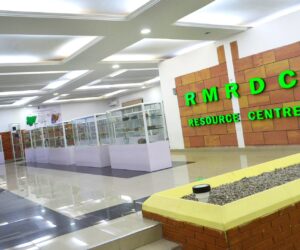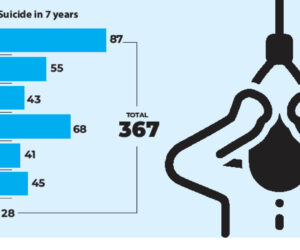Nigerian agri-tech startup, Babban Gona, has raised $7.5 million in debt funding from the British International Investment (BII). The capital will support the company’s mission to provide support for smallholder farmers in Northern Nigeria.
Rooted in its operations is the mission to promote climate resilience for farmers and food security for the country. With the new investment, Babban Gona will scale its innovative model and boost the farm produce and returns of about 150,000 farmers by 2029.
Founded in 2012 by Kola Masha, Babban Gona’s sole aim is to promote agriculture and reduce unemployment in Nigeria. After the launch, Masha temporarily relocated to a small village in the Northern part of Nigeria, which has been severely impacted by insurgent activities.
For Masha, who is the managing director of the startup, the new investment is a testament and recognition of the gap it is filling and the ambition to make an impact in Nigeria’s agricultural sector.
“We are thrilled to have them partner with us in this next phase of our journey as we accelerate the impact of our work. This investment will catalyse the next phase of our journey as we accelerate our work by enabling others to replicate what we do, with a goal to support 50 million smallholder farmers,” Masha said.

He noted that the investment is a powerful testament to Babban Gona’s vision for shaping the lives of smallholder farmers and promoting food security. The $7.5 million funding is the first in over a decade for the company. Its last funding, which was 1/10 of the latest funding, was a public debt raise in 2013.
While speaking about the investment, West Africa regional director and head of office for Nigeria, BII, Benson Adenuga, said the collaboration with Babban Gona represents confidence in a startup that uses high-impact business models to change lives. He added that such strategies help scale the Nigerian economy and strengthen food security.
“By backing this pioneering franchise model, we are not only addressing a critical financing gap but also helping to build a more resilient and productive agricultural sector and support smallholder farmers in a region that is often overlooked by investors,” Adenuga said.
In addition to credit financing, Babban Gona uses its artificial intelligence model, trained with over 2 million images, to assist farmers in assessing related issues on their farms.
The new capital raise further empowers the company’s idea for a tech-enabled model that empowers farmers with access to finance, training, and services. It also spotlights how investment in Agriculture tends to boost yields and incomes while building climate resilience.


Also Read: Kenya’s Apollo Agriculture secures $10m investment to service 400,000 more African farmers.
Babban Gona in the Nigerian agricultural system
Babban Gonna, meaning “Great Farm” in the Hausa language, has been a case study of how private organisations can reshape the Nigerian agricultural sector with innovative approaches.
After it launched in 2012, Babban Gona provided support for 100 members in Kaduna State, Nigeria. Since then, the startup has provided support for over 110,000 smallholder farmers. Babban Gona currently has its operations in 15 Northern states, including Abuja, Adamawa, Kaduna, Kano, Katsina, Bauchi, Plateau and Jigawa states.
Babban Gona provides support for smallholder farmers through the “Trust Groups”, a grassroots-level farmer cooperatives. comprising 3-5 smallholder farmers. The groups are then trained on agronomy, financial literacy, business skills and leadership through the Babban Gona farm university platform.
Upon completion of the training, farmers within the group are provided with loans at low interest.


Agriculture is one of Nigeria’s most resourceful sectors, contributing 34% to the country’s employment in 2023. It experienced a modest growth in 2024, with the first quarter experiencing a 0.18% increase and the third quarter showing 1.14% growth. Also, the sector accounted for 28.65% of the GDP in the third quarter of 2024.
For private agriculture companies such as Babban Gona, there are high chances for development with key investment opportunities. By extension, this promotes job creation, food and nutrition security.








